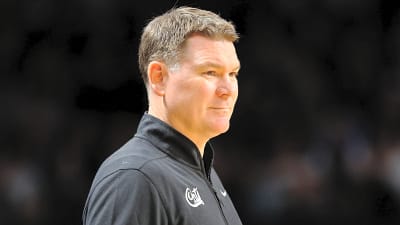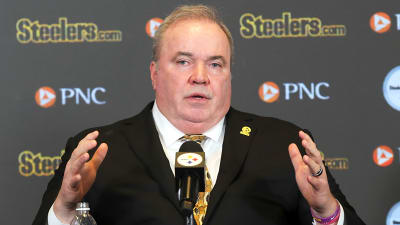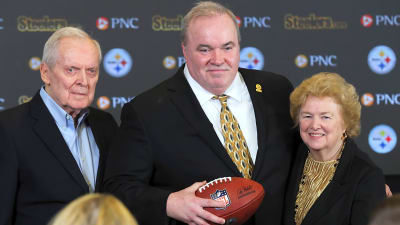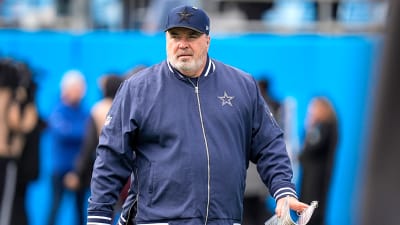Two years ago, following his emphatic knockout of Tony Harrison in Sydney—an impressive performance that secured the interim WBO super-welterweight title—Tim Tszyu stood triumphant before a raucous home crowd. In a moment that fused bravado with theatrical finality, he seized the microphone, steadied his gaze, and proclaimed with visceral intensity:
“I’ve got one sentence. What’s my motherf*cking name?”
The crowd, electrified and unrestrained, roared back in unison: “Tim F*cking Tszyu!”
His ambition extended far beyond capturing a world title on home soil. Tszyu (25-3, 18 KOs) aspired to global eminence—to become not merely a champion, but a transcendent figure in the sport: a fearless gladiator, a man who would rather perish than yield, one who appeared impervious to damage and capable of matching fire with fire.
Yet, 28 months after that audacious declaration, Tszyu’s trajectory has veered dramatically off course. Not only has he failed to ascend to the superstardom he once seemed destined to claim, but a more sobering question now looms: should he ever step between the ropes again? The saga of Tszyu serves as a sobering testament to boxing’s unforgiving nature—where a single miscalculation, strategic or otherwise, can unravel years of momentum and invert the progression of an entire career.
What Happened To Tim Tszyu?
Since proudly donning a “hit list” shirt after the first defense of his WBO junior middleweight title—emblazoned with the names of Jermell Charlo, Terence Crawford, and Saul “Canelo” Alvarez—Tszyu has found himself in an ironic reversal of fortune. Rather than crossing names off his list, it is Tszyu who has been absorbing the punishment, becoming the one getting hit—repeatedly, and with unsettling frequency.
The pivotal moment arrived on March 30, 2024, at the T-Mobile Arena in Las Vegas, where Tszyu returned to American soil with the opportunity to unify two world titles at 154 pounds against the formidable Sebastian Fundora (23-1-1, 15 KOs). Through the first round, Tszyu appeared firmly in command, orchestrating a dominant and seemingly inevitable victory.
Yet, in the ensuing round, the mood of the contest shifted precipitously. Tszyu was deftly outboxing Fundora, consistently landing his right hand, and even drawing blood from Fundora’s nose. Then, in a cruel twist of fate, Tszyu absorbed an errant elbow from “The Towering Inferno,” inflicting a deep, jagged laceration on top of his head. The wound bled profusely, crimson rivulets streaming down his face in a disturbing cascade.
Tszyu elected to fight on, a decision compounded by the sheer incompetence of his corner, which notably included the absence of a specialized cutman, which proved catastrophic.
Remarkably, both Tszyu and Fundora went the distance, with Fundora ultimately prevailing as the unified champion by split decision. The courageous—if arguably imprudent—gamble undertaken by Team Tszyu failed to yield the desired outcome, underscoring the fine line between valor and folly in the unforgiving theater of championship boxing.
Bravery At A Cost
The criticism, it must be noted, does not fall squarely upon Tszyu himself. His job is to fight, and at this level, pride is not merely a characteristic—it is a prerequisite. As an undefeated fighter at the time, Tszyu had entered that rarefied psychological space where he was not just competing but declaring to the world his willingness to die in the ring, to go out on his shield if necessary.
The failure lies instead with his corner—either paralyzed by fear of confronting their fighter or profoundly ignorant of the sport’s regulatory protocols. Had they intervened following the fourth round, the bout would have resulted in a technical draw. In fact, at that point on the scorecards, one judge had Tszyu narrowly ahead by a point, while the other two had the contest even. And had they acted even earlier—before the conclusion of the fourth round—the result would have been ruled a no contest. In that scenario, Tszyu would have retained his world title, preserved his unblemished record, and had the time and clarity to prepare for an eventual rematch.
Jacob “Stitch” Duran, widely regarded as the preeminent cutman in modern boxing, unequivocally stated that he would have stopped the fight before the fifth round began. Duran diagnosed the injury as more than superficial—Fundora’s accidental elbow had severed a major vein in Tszyu’s forehead. In other words, the bleeding was not simply persistent—it was physiologically unmanageable, regardless of technique or intervention. Had Tszyu’s corner possessed this critical medical insight, one could reasonably assume they would have called a halt to the bout—unless, of course, they were operating in total ignorance or recklessness.
Rather than make the articulate decision and preserve their fighter for future battles, Tszyu’s corner elected to abandon all semblance of reason, allowing him to continue against a behemoth of an opponent in Fundora while half-blind and drenched in his own blood. The choice seemed less rooted in strategy than in spectacle—an ill-advised attempt to curate a mythos of toughness, complete with dramatic visuals, at the expense of their fighter’s long-term health. Their decision ultimately cost Tszyu millions in potential earnings—a textbook case of financial self-sabotage. In effect, it was the epitome of squandering generational wealth in real time, the sporting equivalent of flushing money down the toilet. Oh wait, Adrien Broner literally did that, too.
More Bad Decisions
To compound matters, Tszyu and his team carried on as though nothing of consequence had occurred. Was the elbow an unfortunate anomaly? Certainly, but to dismiss it as merely a fluke is to ignore the profound psychological toll such a traumatic episode can exact—an impact that doesn’t simply vanish with time or bravado.
Boxing experts strongly advised Tszyu to prioritize recovery, both physical and psychological, before reentering the ring—and, when he did, to avoid an immediate return against a high-risk opponent. What Tszyu needed was time and a gradual reentry into elite competition—not another brutal war. But did his team heed that advice? They did not.
Tszyu swiftly vaulted back into a title challenge against the newly crowned, undefeated IBF world champion Bakhram Murtazaliev—whom he had previously derided as a “step-aside fighter,” alluding to the Russian contender’s years-long wait as a mandatory challenger, during which he repeatedly accepted financial inducements to postpone his shot at the belt. The remark was intended to undermine Murtazaliev’s legitimacy as a fighter at the elite level, but it aged poorly.
Tszyu often fights as if he’s invincible. It’s a mindset forged perhaps from a combination of early success and arrogance. Tszyu’s defensive mechanics have long been flawed. He doesn’t move his head, and time and time again, fighters have exploited that, especially early in fights. Tszyu was dropped in the first round against guys like Wade Ryan and Terrell Gausha. However, those guys lacked finishing power. Tszyu got back up and outboxed them with ease. However, he never once improved defensively.
Against Murtazaliev, that illusion of immortality blew up in their faces. Tszyu was dropped four times—three of them occurring in a lopsided second round—and sustained a punishing assault en route to a third-round TKO. To compound the humiliation, Tszyu’s father, the legendary Hall of Famer Kostya Tszyu, was seated ringside, witnessing his son fight in person for the first time since Tim’s professional debut in 2016.
No Days Off
Despite the devastating nature of the knockout, Tszyu remained stubborn. After sustaining a knockout, a vicious one at that, rest isn’t merely recommended—it is imperative. Yet in the world according to Tszyu, the laws of neurological recovery are optional. Astonishingly, the 30-year-old former champion confessed to taking just a single week off before resuming his training regimen following the Murtazaliev defeat. One is left to ask: where was his team? Where were the voices of reason—the people who supposedly care for his long-term well-being—willing to step in and say, “Listen, this isn’t prudent. Your brain requires time to heal. We need to be smart about how we return to the sport.” Their silence, or worse, their complicity, is as concerning as the fighter’s own defiance.
Tszyu returned to action on April 6 was a soft touch, dispatching Joey Spencer in four rounds. However, it would have been beneficial to have gotten Tszyu another one of those tune-up fights to give him another look or opportunity to fix some of the flaws before getting back into another war.
Some observers misconstrued the Spencer stoppage as a meaningful statement; it wasn’t. Spencer, while a familiar presence on Premier Boxing Champions undercards, built his résumé against a revolving door of profoundly overmatched opponents. Within boxing circles, the more polite nickname for Spencer’s opposition was “baby food.” Other analysts referred to them in terms unfit for publication. These were aging journeymen and regional fighters with little technical acumen—opponents designed to lose, not to test. In other words, they were terrible. And when Spencer finally faced opposition with even a modicum of skill, his knockout ratio diminished accordingly.
Tim Tszyu Beaten Into Submission
On Saturday, Tszyu got his chance to enact revenge against the man who started his precarious downfall: Sebastian Fundora. In the co-main event to Manny Pacquiao‘s return against Mario Barrios, Tszyu stepped into the ring looking to snag Fundora’s WBC title. The start of the fight foreshadowed how the rest of the bout was going to go for Tszyu: poorly. Fundora decked him in the opening round with a straight left hand.
The rematch served as a testament to Fundora’s maturation as a fighter. The towering six-foot-six southpaw, once criticized for squandering his reach advantage, demonstrated a newfound discipline—employing sharp distance management, a sharp jab, and increasingly punishing combinations that systematically broke down his opponent.
In contrast to his earlier bouts, Fundora fought like a man fully aware of his physical gifts and used them to his advantage. Meanwhile, Tszyu, typically the aggressor, appeared uncharacteristically tentative—slower on the trigger, unsure of his range, and at times visibly reluctant to engage.
Albeit Tszyu found moments of success, they were fleeting. For every punch he landed, Fundora made him pay—exposing his porous defense with thudding counters that rocked him back on his heels. The hunter had become the hunted, and the contrast could not have been more stark.
Before the commencement of the eighth round, an unanticipated moment unfolded: Tszyu quit on his stool. This was the same man who, scarcely 16 months prior, declared his willingness to die in the ring—a fighter who trudged through a cascade of his own blood in pursuit of the final bell in the first fight against Fundora. But on this night, Tszyu had evidently seen and absorbed enough.
Reality Check
Boxing is a sport devoid of mercy, where redemption is scarce and punishment swift. Who knows what the future holds for Tszyu, but right now, he needs to rest; for a while. Though only 30 years of age, Tszyu has endured the physical toll of a career’s worth of attrition in just three fights.
If Tszyu intends to continue his career at the highest level, a fundamental rebuild is in order—beginning with his corner. The current iteration of Team Tszyu has demonstrated a troubling pattern: an unwillingness, or perhaps an inability, to do the proper job.
Now that Tszyu has experienced the sobering reality of sustained punishment, he finds himself at a crossroads. Whether Tszyu is willing to evolve remains to be seen. But this much is certain—continuing to fight with his face, absorbing clean, concussive shots is not a sustainable strategy. If he wishes to emerge from this career with both his faculties and future intact, he must embrace change—not as a betrayal of identity, but as a means of progressing.
For now, Tszyu is yet another statistic in boxing’s merciless wrath—where a single miscalculation could mean the difference between being a global superstar or completely shot.
More must-reads:
- Luka Doncic accomplishes feat no other Lakers player has ever done
- Former Hornet Amari Bailey seeking NCAA return
- The 'Most TD in first two NFL seasons' quiz
Breaking News
Trending News
Customize Your Newsletter
 +
+
Get the latest news and rumors, customized to your favorite sports and teams. Emailed daily. Always free!








